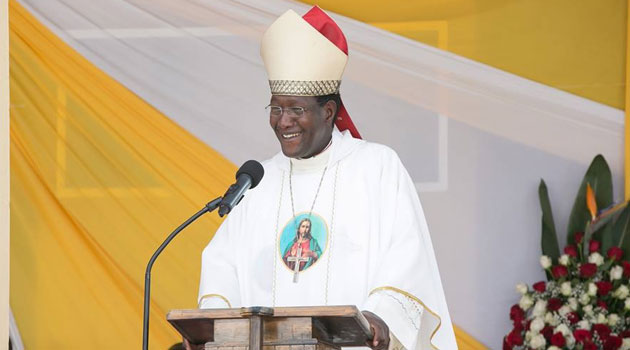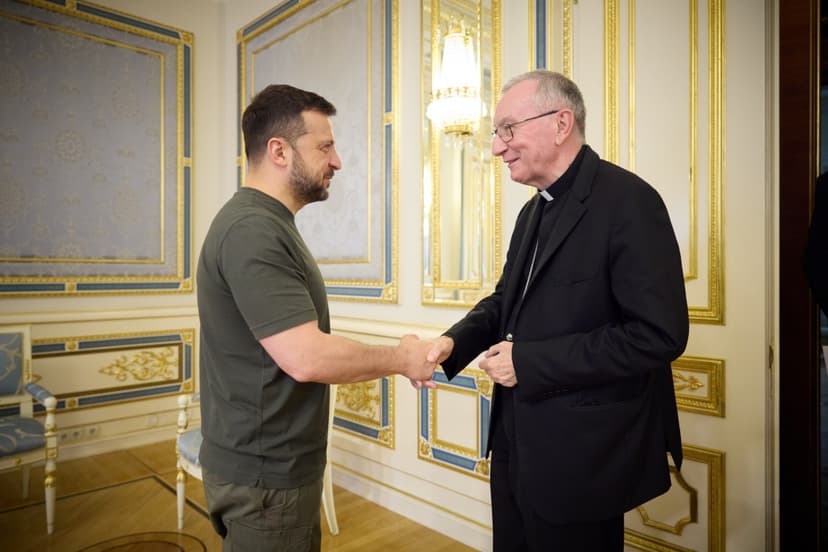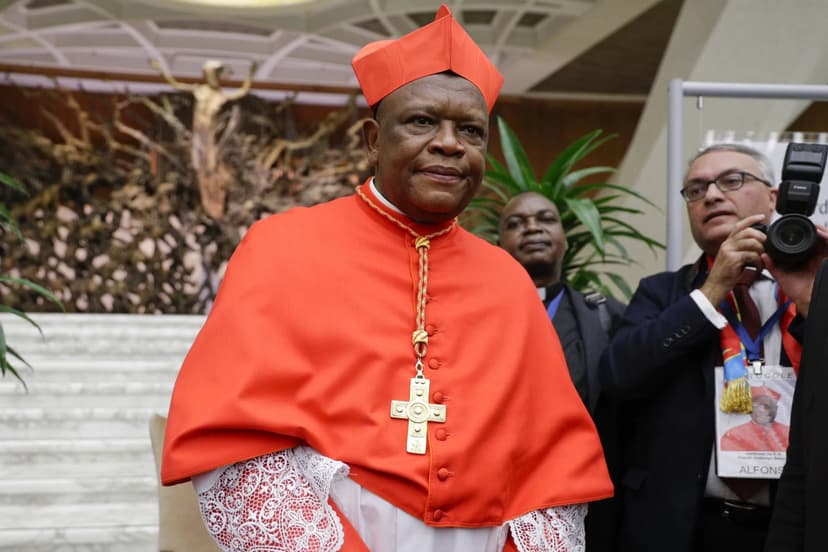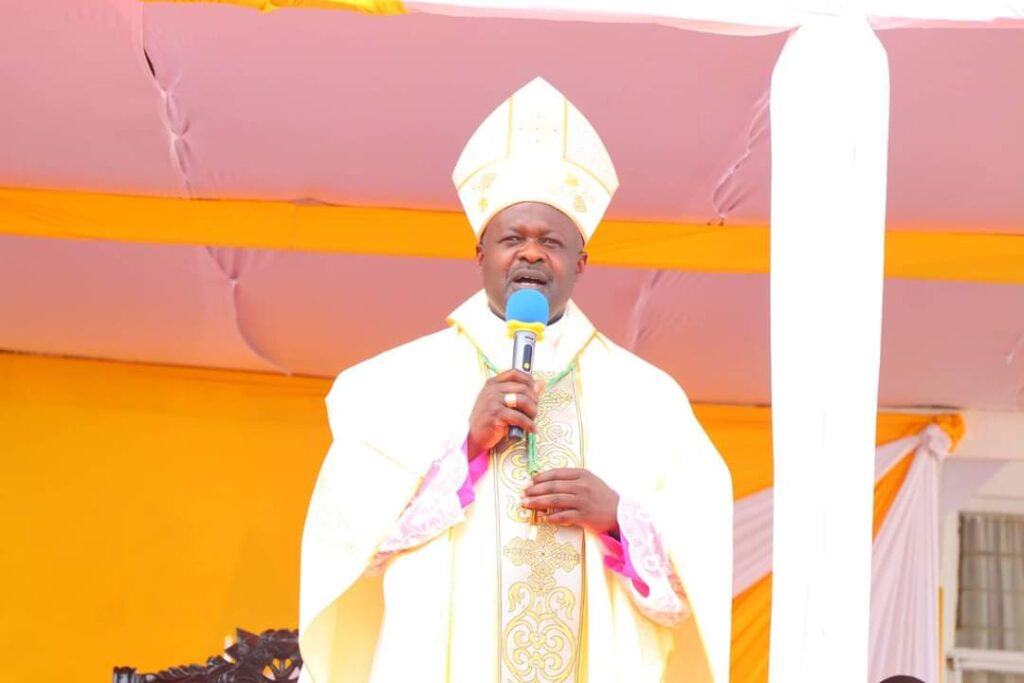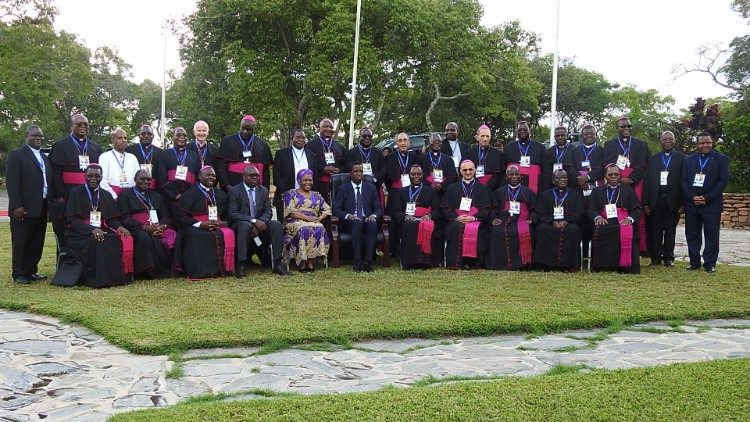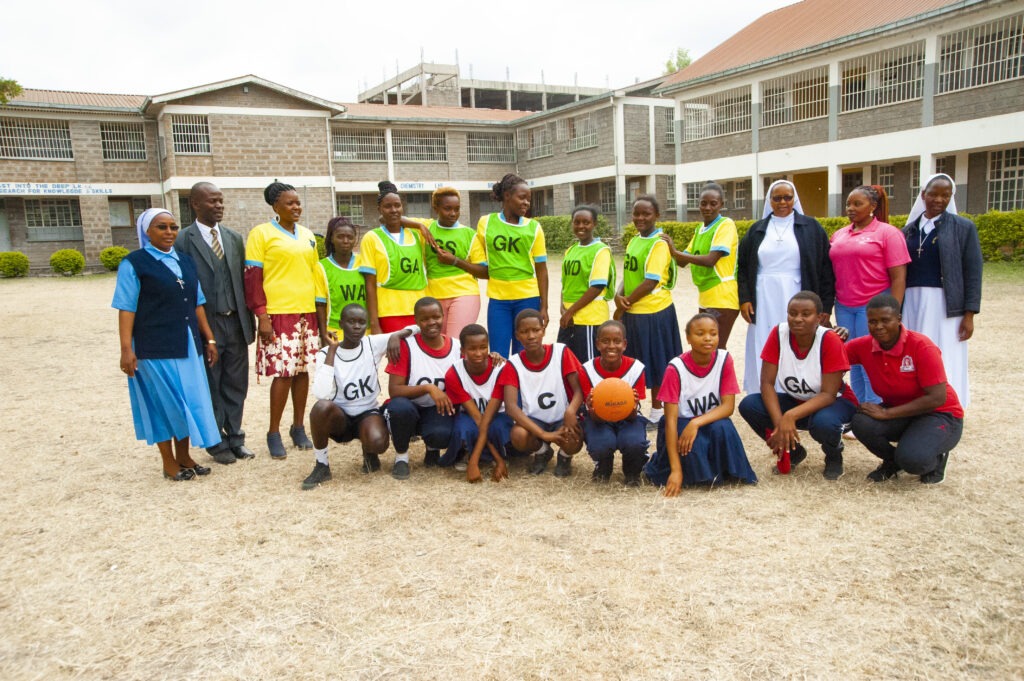The Bishop of the Catholic Diocese of Kericho, Alfred Rotich, has called on Kenyans to fulfill their roles as peacemakers to reconcile the nation, lamenting instances of violence, displacement, and strained relationships that have left scars among the people.
By Rose Achiego Ande – Nairobi.
In a powerful message of reconciliation delivered during the National Prayer Day at the Marian Shrine in Subukia, Nakuru County on7th October 2023, Bishop Alfred Rotich highlighted pressing global issues of conflict and suffering, where lives and homes have been lost. He lamented that some conflicts ran so deep that they led to despair and, in some cases, even suicide.
Quoting from Matthew 5:9, which states, “Blessed are the peacemakers, for they will be called children of God” (Matthew 5:9), Bishop Rotich emphasised the profound responsibility that comes with being part of the Catholic Church
Christians as peacemakers
In such a context of darkness and pain, Bishop Rotich reminded the faithful of their mission as peacemakers and emphasized that the path to peace involved three main elements: mercy, reconciliation, and journeying together.
According to Bishop Rotich, mercy plays a crucial role in helping individuals move from distress to tranquility. It is a reminder of God’s unconditional love and forgiveness. Reconciliation is the process of mending strained relationships and bringing about unity within families, communities, and the nation as a whole. It’s a call to move beyond divisions and conflicts. Journeying together signifies the commitment to accompany those in pain, despair, or strained relationships in their journey towards healing and reconciliation. It’s an act of compassion and solidarity.
Journeying Together as a Reconciled Family
The theme of this year’s prayer day “Journeying Together as a Reconciled Family,” resonated with the ongoing Synod in Rome, led by Pope Francis which aims at discerning how the Church can journey together as a reconciled family.
The Bishop drew inspiration from the Biblical account of John the Baptist’s mission and his interactions with King Herod. Herod’s rejection of God’s mercy and his refusal to reconcile with his sins led to the tragic fate of John the Baptist. This story illustrated how one person’s sin can harm others and formed the foundation of the call to journey together in reconciliation.
He identified several reasons why reconciliation in Kenya has faced challenges over the years.
These include:
Historical Context: The legacy of colonialism, which employed divisive tactics, sowed the seeds of tribal discord, and created lasting divisions among Kenya’s diverse ethnic groups.
Missteps in Multiparty Politics: The introduction of multi-party politics, while aimed at democratization, often aligned with tribal affiliations and fueled divisions.
Culture of Corruption: Rampant corruption has eroded public trust in government institutions and services, leading to moral decay and compromising ethical principles.
Neglect of Reconciliation: Reconciliation has often been relegated to a secondary priority, leading to unresolved resentments rooted in historical grievances, tribal divisions, and political disputes.
To address these challenges and embark on the journey of reconciliation, Bishop Rotich proposed three concrete actions:
Forming Credible Teams of Elders: Establishing teams of respected elders from diverse backgrounds to address grassroots conflicts and cross-border tensions.
Forming Reconciliation Committees: Creating local committees within Small Christian Communities to identify and address major divisive issues and seek guidance from the national level.
Embracing Alternative Dispute Resolution: Promoting mediation and arbitration as means to resolve conflicts and promote dialogue.
Cultivate attitudes needed for reconciliation
He concluded his message by urging all Kenyans to embrace reconciliation as a practical call, emphasizing that reconciliation is a journey, not an event. He encouraged everyone to heed the call to be peacemakers, reminding them of the importance of truth, humility, empathy, non-judgmental attitudes, and patience in the reconciliation process.
The message left a powerful impact on the gathered faithful, inspiring hope that by journeying together as a reconciled family, Kenya can overcome its divisions and emerge as a beacon of unity, peace, and reconciliation in Africa and beyond.
Bishop Rotich’s message serves as a reminder that reconciliation is a continuous and vital process, requiring the active participation of individuals and communities in healing and building a harmonious society.
This year’s National Prayer Day was animated by the Metropolitan See of Nairobi. The event was attended by several Bishops, the Clergy and Religious and attracted more than 50,000 pilgrims.
The Kenya Conference of Catholic Bishops (KCCB) organises national prayers every year. The next prayer day will be celebrated on 5th October 2024.

